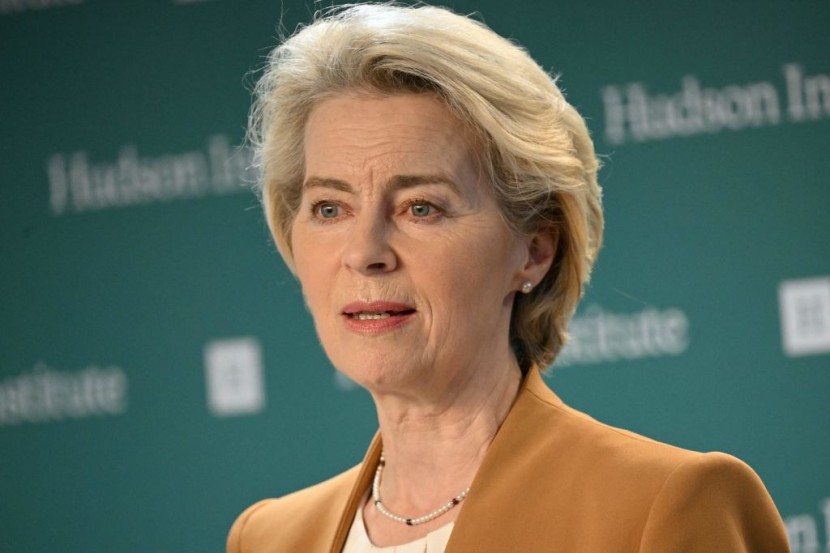Recently, a wave of billboards has flooded Hungary's streets, setting the stage for a heated election campaign and intensifying the longstanding tensions between the country's nationalist conservative government and the European Union.
The focal point of these billboards is Ursula von der Leyen, the President of the European Commission, and Alex Soros, the son of Hungarian-American financier George Soros, a figure vilified by Hungary for years, as per ABC News.
Hungary's Anti-EU Surge

The government-funded ads convey: "Let's not dance to their tune." Including von der Leyen and Soros in the same frame underscores Hungary's discontent with the European Union's leadership and those associated with perceived attempts to undermine Hungarian sovereignty.
Hungarian Prime Minister Viktor Orbán, known for his adversarial stance towards the EU, has consistently accused Brussels of imposing unwanted policies on Hungary.
He has gone so far as to liken EU membership to the decades of Soviet domination Hungary endured in the 20th century. The European Parliament, in turn, has labeled Hungary's government a "hybrid regime of electoral autocracy," questioning its commitment to democratic principles.
This billboard campaign isn't the first time Hungary has targeted EU leadership and the Soros family. In 2019, a similar initiative featured the laughing faces of the-European Commission President Jean-Claude Juncker and George Soros, drawing accusations of antisemitism.
The current campaign, launched overnight to kickstart a push for the upcoming European parliamentary election in June, is intertwined with Hungary's latest "national consultation."
This informal survey, distributed to every adult in Hungary, delves into divisive issues such as migration, LGBTQ+ rights, and support for Ukraine. Peter Kreko, director of the Budapest-based think tank Political Capital, sees this as an "escalation of the government's anti-EU rhetoric" ahead of the crucial elections.
Kreko points out that this national consultation represents the most anti-EU document released by the Hungarian government to date. The move appears self-defeating, especially considering Hungary's urgent need for EU funding.
The EU has withheld billions due to Hungary's failure to comply with rule-of-law standards and anti-corruption measures. Despite initial attempts to unlock these funds through reforms, the anti-EU campaign suggests a possible resignation on Hungary's part, according to Reuters.
Read Also : Missing Israeli Woman Shani Gabay Found Dead
Amplifying Anti-EU Messages Amid Fund Loss
Dorka Takacsy, a research fellow at the Centre for Euro-Atlantic Integration and Democracy, suggests that the Hungarian government's decision to amplify anti-EU messages might indicate a refusal to change its behavior, even when losing crucial EU funds.
The gripping economic repercussions, including a technical recession and the highest inflation in the EU, do not deter this stance. Speculation about Hungary's potential exit from the EU, colloquially referred to as "Huxit," has been gaining traction.
Observers note a sharpening of Orbán's anti-EU rhetoric, with some suggesting he is attempting to cultivate a euroskeptic public opinion. Kreko argues that while Orbán might not be planning Huxit immediately, he could leverage the threat to extract concessions from the EU.
During a recent Fidesz party congress, Orbán painted a bleak picture of the EU's future, asserting that the "Brussels model of Europe" is unsustainable and has no end. He accused the EU of destroying Europe and leading it to ruin.
Despite such dire predictions, European Commission spokesperson Eric Mamer remains confident in Hungarian voters' ability to discern between reality and Orbán's claims.
Mamer shared that he had shown the ads to von der Leyen, who remained unfazed. He labeled the statements in the national consultation as "completely untrue" and emphasized that they do not align with standard practices when seeking public opinion.
As Hungary steers towards a critical juncture in its relationship with the EU, the billboard campaign serves as a potent symbol of the deepening divides between the nationalist government and the supranational entity it is tethered to, setting the stage for a highly contentious European parliamentary election in June, AP News reported.
© 2025 HNGN, All rights reserved. Do not reproduce without permission.








